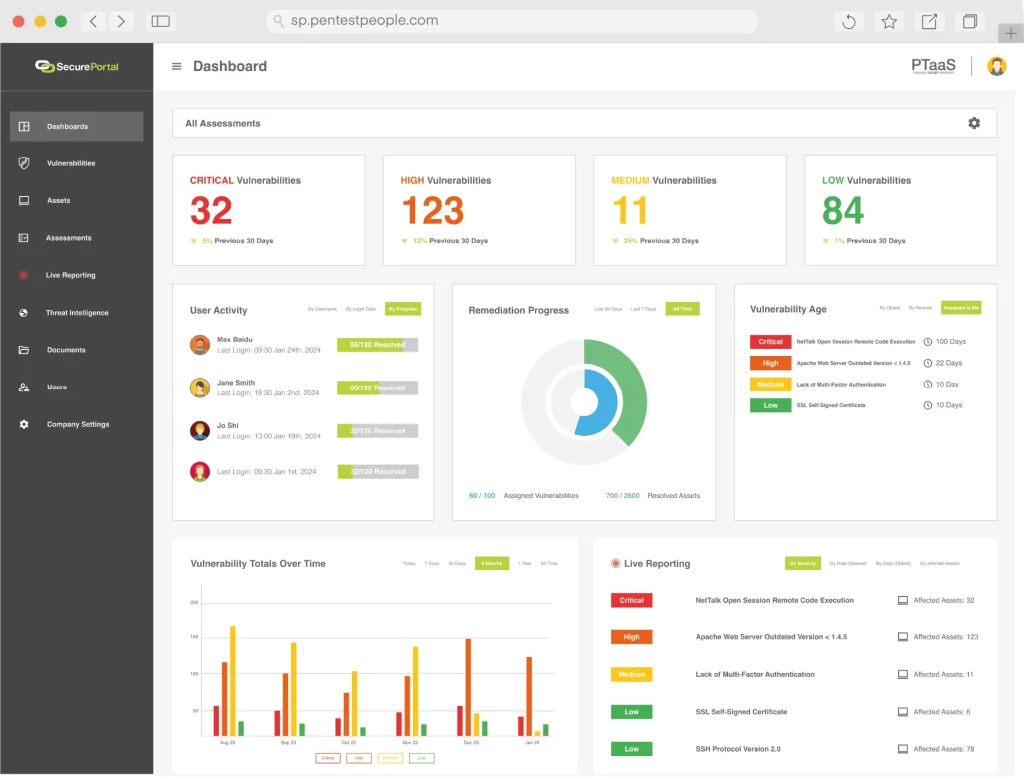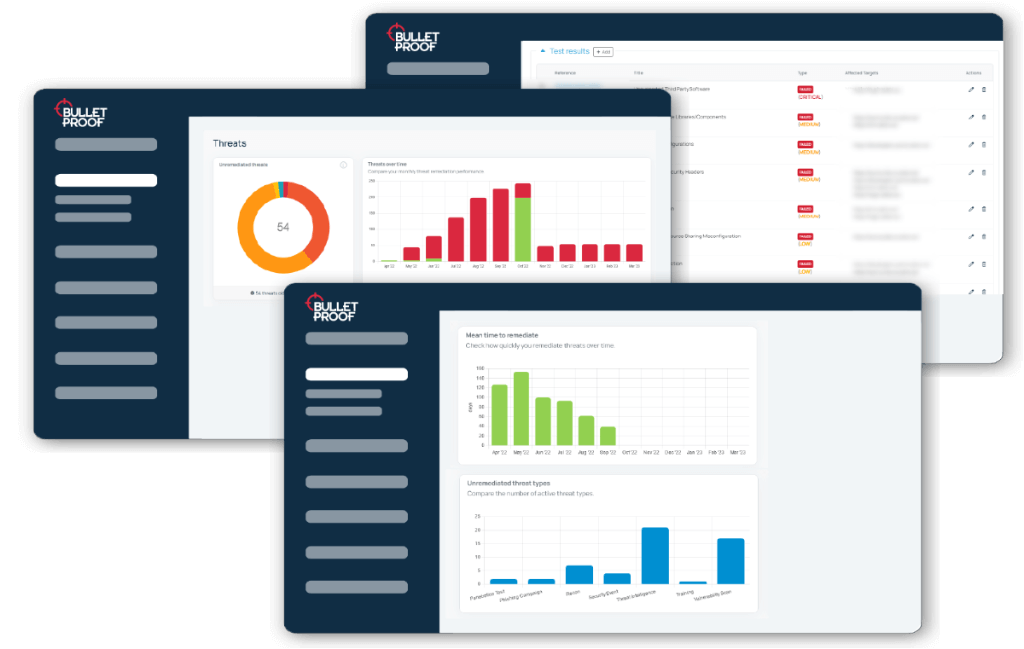Protect your company
Cyber Security Consultant for UK Businesses
Cyber threats affect even the most successful UK businesses. Whether you’re a startup or a large organisation, you must protect yourself from data breaches, phishing scams, and ransomware. Our expert cyber security services offer 24/7 monitoring, with proactive, real-time, global support to stop attacks before they happen. Enquire now to stay secure.

Protect your business from cyber threats
Contact our cyber security experts to get tailored solutions that keep your systems safe and secure.

Bulletproof cyber security solutions
The renowned Bulletproof, a leading business cyber security UK specialist, working in partnership with WorkNest, provides a wide range of essential cyber security and business protections. Every business has unique security needs and our approach is tailored to provide the right level of protection.
Whether you need small business cyber security services or are looking to meet compliance requirements as a large organisation, our process adapts to your specific risks, infrastructure, and industry regulations.
Our process adapts to your specific risks, infrastructure, and industry regulations. Bulletproof’s cyber security services are fully scalable, offering everything from one-off assessments to ongoing managed security solutions. No matter your level of expertise or internal resources, we provide the right balance of proactive protection and reactive support to keep your organisation.

A suite of innovative cyber protection services
With nearly a decade of experience providing an expert service, we specialise in helping businesses stay protected against evolving threats. Partnering with Bulletproof, we have a proven track record of delivering innovative and tailored solutions that address complex security challenges.
We take pride in building and nurturing exceptional cyber and compliance talent to make sure we get the best outcomes for our clients. We recruit our own dedicated teams of cyber security specialists, including security analysts, penetration testers, data protection experts and compliance consultants.
Whether you’re looking for a company penetration test, a seasoned Data Protection Officer (DPO) or an experienced Chief Information Security Officer (CISO), we’re a trusted partner in keeping your organisation secure.
- Penetration testing
- Red teaming
- Managed SOC and SIEM
- Incident response
- MDR
- Vulnerability scanning
- Digital forensics
- Social engineering
- Virtual CISO
- Cyber security assessment
- Cyber security training
- Cyber Essentials
- Cyber Essentials Plus
- ISO 27001
- SOC 2 compliance
- CREST OVS Assessment
Benefits of working with a UK cyber security specialist
Partnering with dedicated cyber security specialists ensures your business gains access to cutting-edge security strategies without the need for in-house expertise. This not only saves time and resources but also enhances confidence in risk management. With specialists managing your security, you can focus on core business objectives, knowing that your organisation is resilient against threats.
A structured system helps maintain compliance and protects sensitive data, builds customer trust, and ensures long-term business resilience. Our constant vigilance ensures that your security measures evolve alongside emerging threats, keeping your business protected in today’s digital-first world.


Why cyber security is important for business success
A full cyber security assessment will reveal weaknesses in your safety protocols, helping us to seal the gaps and keep you compliant with UK laws.
Cyber attacks can lead to costly downtime, fines, and reputational damage. The financial impact of a cyber breach can be devastating, with businesses facing regulatory penalties, loss of revenue, and potential legal action from affected customers. Small businesses are particularly vulnerable, with 60% of small businesses closing within six months of a major cyber attack.
Many industries must comply with strict data protection laws such as General Data Protection Regulation (GDPR), PCI DSS (Payment Card Industry Data Security Standard), and Network and Infrastructure Regulations (NIS). Non-compliance can result in hefty fines, legal consequences, and reputational damage. Regulatory bodies take a firm stance on data breaches, holding businesses accountable for failing to implement adequate security measures, making compliance a critical part of any cyber security strategy.
Customer, employee, and business data must remain secure to maintain trust and operational integrity. A data breach could expose financial records, intellectual property, and personal information, leading to identity theft, fraud, and lasting reputational harm. Businesses that fail to protect their data risk losing client confidence and future business opportunities.
Studies show that 85% of cyber breaches are caused by human error, whether through weak passwords, falling victim to phishing scams or other social engineering mechanisms resulting in accidentally exposing sensitive data or access to systems. Implementing ongoing security awareness training and enforcing strict access controls significantly reduces these risks.
A cyber attack can severely impact a company’s reputation, leading to lost business, customer churn, and difficulty securing future contracts. High-profile breaches often attract negative media attention, discouraging potential clients and partners from engaging with affected businesses.
Attacks like ransomware can cripple business operations by encrypting critical data and demanding payment for its release. Prolonged downtime can result in productivity losses, missed deadlines, and operational disruptions, making it essential to have disaster recovery and incident response plans in place.
Cybercriminals continuously refine their tactics, using sophisticated techniques like AI-driven attacks, supply chain vulnerabilities, and zero-day exploits. Businesses must adopt advanced security measures, including real-time threat monitoring, regular security updates, and penetration testing, to safeguard against emerging threats.
Feature
Lite
Professional
Feature
Feature
Feature
Feature
Our meticulous cyber security process
Our process is built on industry standard procedures of risk assessment, penetration testing, security enhancements, employee training, and continuous monitoring. These steps ensure vulnerabilities are identified, defences are strengthened, and your business remains protected from evolving threats.
Partnering with a UK cyber security company provides significant advantages, particularly for UK businesses that must adhere to strict regulatory and data protection laws, such as GDPR, PCI DSS, and ISO 27001. Compliance with these regulations is not only a legal requirement but also essential for maintaining customer trust and avoiding substantial fines.
Our computer security specialists provide continuous threat monitoring, risk assessments, and incident response. This expertise allows businesses to identify vulnerabilities, implement proactive security strategies, and respond swiftly to incidents to significantly reduce the risk of costly breaches.
For UK businesses operating in finance, healthcare, retail, and professional services, working with cyber security specialists ensures solutions are tailored to industry-specific risks. A dedicated security team understands the unique threats faced by your sector and develops customised protection strategies that align with legal requirements and best practices.

UK cyber security and risk management
Cyber threats are constantly evolving, with businesses facing an increasing number of attacks, from ransomware and phishing scams to large-scale data breaches. As cybercriminals refine their tactics, companies must prioritise robust measures to protect their operations, customers, and sensitive data.
Partnering with a cyber security company provides significant advantages, particularly for UK businesses that must adhere to strict regulatory and data protection laws, such as GDPR, PCI DSS, and NIS. Compliance with these regulations is not only a legal requirement but also essential for maintaining customer trust and avoiding substantial fines.
Our cyber security specialists provide continuous threat monitoring, risk assessments, and incident response. This expertise allows businesses identify vulnerabilities, implement proactive security strategies, and respond swiftly to cyber incidents – significantly reducing the risk of costly breaches.
For UK businesses operating in sectors such as finance, healthcare, retail, and professional services, working with a cyber security specialist ensures that security solutions are tailored to industry-specific risks. A dedicated security team understands the unique threats faced by your sector and develops customised protection strategies that align with legal requirements and best practices.
Recruiting and maintaining an in-house team can be expensive, requiring ongoing investment in skilled personnel, tools, and training. A cyber security provider offers enterprise-level protection at a fraction of the cost, making it a scalable and cost-effective solution for businesses of all sizes.
By outsourcing to trusted professionals, businesses can focus on core objectives with confidence, knowing that their security measures evolve alongside emerging threats. With 24/7 monitoring, proactive risk management, and expert-led incident response, a specialist cyber security partner ensures that your business remains resilient in an increasingly digital world.

Enquire now for 24/7 SME cyber security
Get instant protection for your business from global digital threats. Cyber security for businesses to full security for SMEs, our Bulletproof consultancy partnership provides peace of mind, 24/7, all year round.
Protect your business from cyber threats
Contact our cyber security experts to get tailored solutions that keep your systems safe and secure: 01438 500 093.
Cyber security FAQs
Is data security and cyber security the same?
No, while both terms are related, they refer to different aspects of protection. Data security focuses specifically on safeguarding sensitive information from unauthorised access, theft, or loss, while cyber security is a broader term that includes the protection of all digital systems, networks, and data from cyber threats, including malware, hacking, and phishing.
What do cyber security analysts do?
Cyber security analysts monitor and protect an organisation’s systems and networks from cyber threats. They assess vulnerabilities, implement security measures, and investigate security breaches. They also ensure that security protocols and compliance regulations are followed and work to prevent potential attacks through proactive measures.
What is botnet in cyber security?
A botnet is a network of computers or devices infected with malware and controlled by a cybercriminal without the owner’s knowledge. These compromised devices, often referred to as “zombies,” are used to carry out malicious activities, such as distributed denial-of-service (DDoS) attacks or stealing sensitive data.
What are social engineering techniques used by hackers?
Some hackers will craft targeted, bespoke campaigns against you, whilst others will adopt a blanket approach to catch business who are less prepared. With so many different tactics and techniques available to cyber criminals, regular social engineering prevention is the best way to stay protected.
What is DDOS attack in cyber security?
A DDoS (Distributed Denial-of-Service) attack is an attempt to overwhelm a website or online service by flooding it with massive amounts of traffic, rendering it unavailable to users. The attack often involves a botnet, where multiple devices are used to flood the target server, causing disruptions to normal service.
What is hacking in cyber security?
Hacking refers to the act of gaining unauthorised access to computer systems, networks, or data, typically to steal information, cause damage, or exploit vulnerabilities for malicious purposes. Hackers use various techniques, such as exploiting software vulnerabilities or tricking users into revealing sensitive information, to gain access to their targets.
What is social engineering?
Social engineering is a cyber attack technique that manipulates people into revealing confidential information or performing actions that compromise security. Instead of hacking systems directly, attackers exploit human psychology, such as trust, fear, or urgency – to trick victims into giving up sensitive data, credentials, or access. Phishing is the most common type of social engineering.
How can I defend against social engineering attacks?
Social engineering is a cyber attack technique that manipulates people into revealing confidential information or performing actions that compromise security. Instead of hacking systems directly, attackers exploit human psychology, such as trust, fear, or urgency – to trick victims into giving up sensitive data, credentials, or access. Phishing is the most common type of social engineering.
